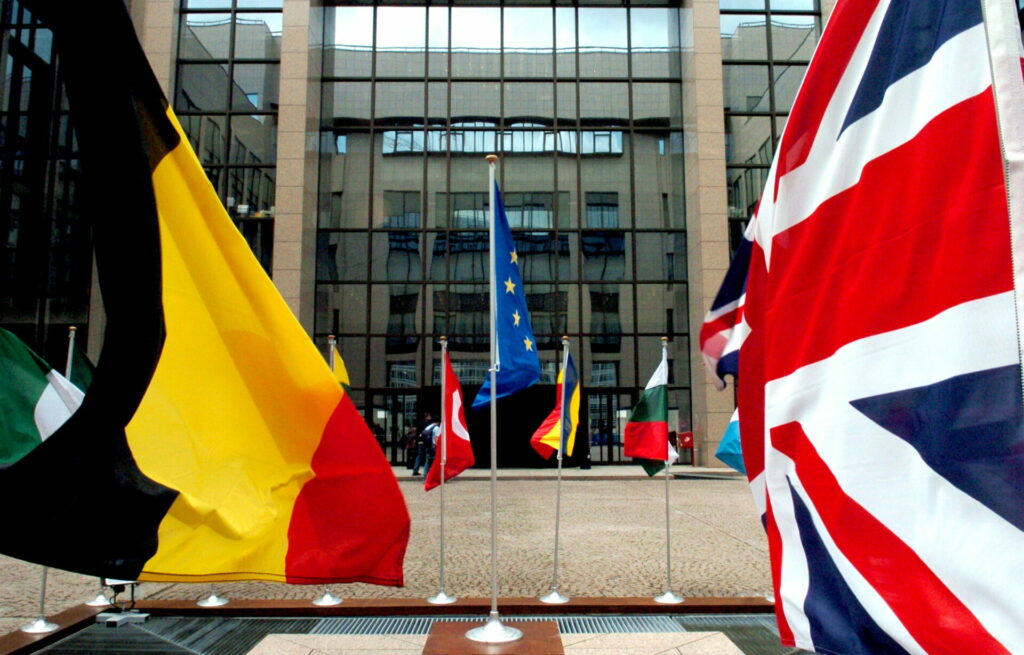Around three million British citizens living overseas – including in Belgium – will regain their right to vote in UK elections due to legal changes taking effect today (16 January).
Due to the so-called 15-year rule, any British citizen who has lived outside the United Kingdom for more than 15 years was disenfranchised. But legislation has now been approved ending this rule just in time for the 2024 General Elections, expected to take place in the second half of this year.
British and eligible Irish citizens aged 18 and over and living overseas can now register to vote in the United Kingdom no matter how long ago they left or last registered to vote.
"Voting is a basic citizenship right regardless of where someone lives," affirmed Jane Golding, Co-chair of the campaign group British in Europe. "This is a historic change to the UK franchise after years of campaigning."
The legal changes will come into force on Tuesday 16 January, the group confirmed to The Brussels Times. This brings the UK in line with other democracies that grant their nationals living abroad votes for life, such as the United States, France, Italy and Canada.
What do the changes entail?
The UK has one of the largest diasporas globally, with approximately 4.7 million British citizens living abroad. But those who had lived abroad for longer than 15 years (an estimated 3.4 million UK citizens) were excluded from voting up until now.
In 2016, more than 60% of UK citizens living in the EU had no say in the Brexit referendum which led to the removal of their EU citizenship rights and changed their lives forever.

Brexit goodbye party on Grand Place. Credit: Belga
Now, any British citizen living abroad who has previously lived in or been registered to vote in the UK, will have the right to vote at UK Parliamentary elections, including general elections and by-elections as well as referendums.
However, this does not include local elections, and there are different rules for the Stormont (Northern Ireland), Senedd (Wales) and Holyrood (Scotland) elections.
The administrative hassle related to voting from abroad will also be minimalised, as the registration period for these voters will be extended from one year to three. This means that overseas voters only have to register to vote every three years. The overseas declarations last until 1 November in the third year after they take effect.
How to vote
The British in Europe group detailed various reasons why Brits abroad would want to vote. "Perhaps you have elderly parents who need access to good health and social care in the UK? Or you are in a relationship with a non-British citizen, and may find it hard to meet the minimum income requirement and other immigration costs and conditions if you want to move back to the UK with them."
British citizens living abroad will need to register to vote and make a declaration as an overseas elector online. This is not possible for Northern Ireland: instead, people need to download, print and complete a registration form.
Voters who were previously disenfranchised will need to prove their identity (either with a National Insurance Number or passport) and provide evidence of their last place of residence (with a document including name and relevant address), or where they were last registered to vote in the UK.
They will be registered at the constituency where they were last registered to vote, or where they lived if they were not registered to vote before.
The deadline for registration to vote in the next Parliamentary elections will be 12 working days before polling, the group said. "Obviously, the earlier you register the better, in case of problems proving your identity or last residence."
Related News
- Mayor of London denounces the cost of Brexit and calls for closer ties with the EU
- Brexit in Brussels: How the UK's EU departure affected Brits in Belgium
Once registered, votes can be cast by post, by proxy (allowing a UK citizen to vote for you) or in person. If choosing to vote by post, the ballot pack will be posted 19 working days before the election.
The Electoral Commission together with British in Europe will extend the reach of voter registration campaigns to ensure new voters are made aware of the change. Brits abroad can also contact both services if they need help.

